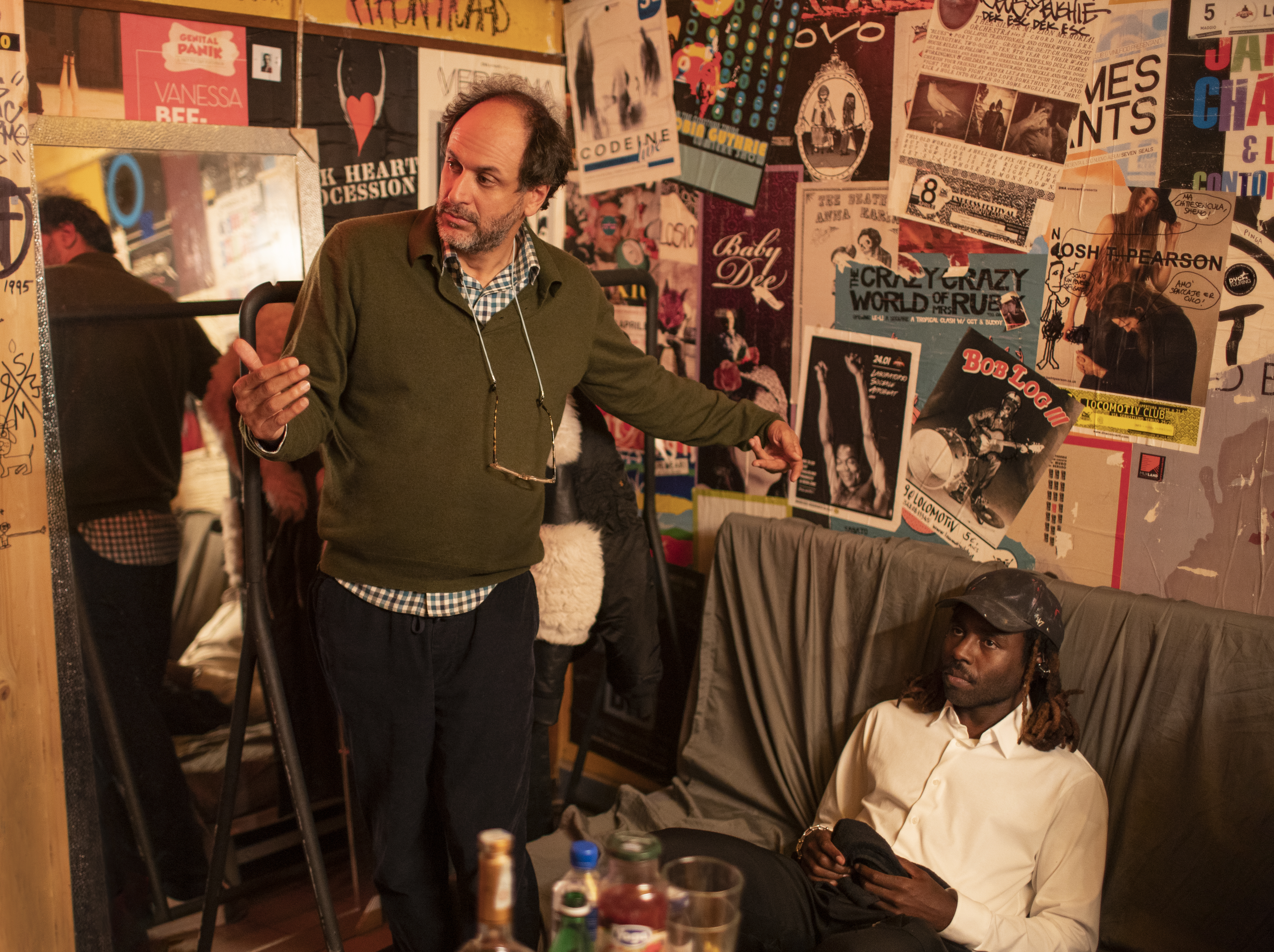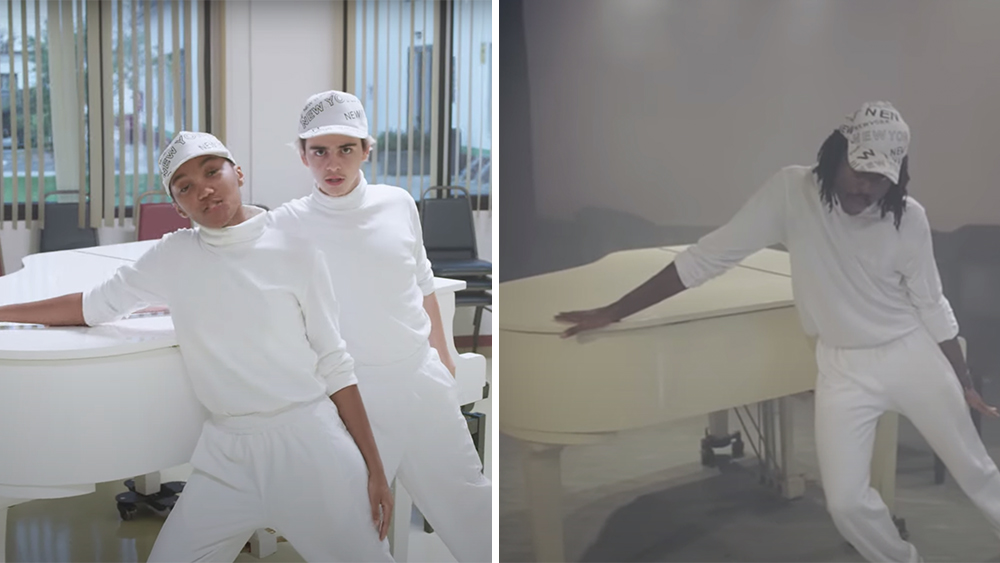Devonté Hynes fills the world of Luca Gaudagnino’s We Are Who We Are with airy piano scores and haunting synth numbers that give color and character to the Chioggia military base and its eclectic group of residents. However, when the Blood Orange front man isn’t tying the lush scenes of Italy’s coast together with original music, he’s part of the story – as an integral figure in the season finale and as an idol for Jack Dylan Grazer’s teenage protagonist, Fraser.
We Are Who We Are may be Hynes’ first venture into the world of television scoring, but the creator’s far from new to the Hollywood scene. In 2013 he composed original music for Gia Coppola’s Palo Alto and Melina Matsoukas’ Queen & Slim in 2019. Hynes recently took home an ASCAP London Music Award for his OST for the drama starring Jodie Turner-Smith and Daniel Kaluuya.
Related Story
‘Gossip Girl’: Karena Evans To Direct First Two Episodes Of HBO Max Series Reboot
As the HBO Max limited series comes to its first season finale, Hynes spoke to Deadline about initially joining We Are Who We Are as a guest, collaborating the Luca Guadagnino for what the director sees as an “eight-hour film” and the show’s numerous, unapologetic odes to Blood Orange himself.
Read on for the full interview, which has been edited for length and clarity.
DEADLINE: How did Luca Guadagnino and the We Are Who We Are team first approach you about being involved in the series?
Hynes: So [Guadagnino] sent me a script. We joked about how Blood Orange’s mentioned and it was crazy to hear that and see that on the page. Then he talked about how he wanted to include this concert that I played in 2016 in Bologna, which me and my manger couldn’t really remember doing. He just kind of said that we were going to recreate it.
This is all before the idea of scoring the show even existed.
DEADLINE: How did the conversation about recreating a concert for the season finale become one about composing for the eight-episode show?
Hynes: It just happened naturally. I’ll come to set and see them shooting and just hang out because I wanted to see [Guadagnino] and Yannis (Drakoulidis). We talked about film and talked about music and composing. I started watching some edits and then the editor Marco (Costa) and I, we spoke about the idea of really finding something to link the characters, kind of like a thread and we tried a couple of themes.
The first one was a piece when they’re riding their bikes through the town and it just kind of built form there. It just kind of slowly happened. It wasn’t even really a big conversation. We met up again in Paris and I basically watched the whole show. I just kept trying stuff.
DEADLINE: What was it like collaborating with Guadagnino as a composer?
Hynes: He’s good, he’s not all that specific, but he knows the feelings and the moods happening throughout the show. He’s so good at explaining that. My first score was on piano and I think he felt that it’s the base of everything. Most of the music on the show is piano-based and some heavily feature synthesizers. I feel that the piano grounded it. The characters are in this space and surrounded by beautiful sights and sounds, and they’re young kids. I like the idea of that classical setting but adding an element of modernity like synthesizers doing the exact same stuff. It’s like the kids in the show, almost.
Luca himself loves classical music across the board. Even beyond classical music, he’s such a music fan that it really shows. When you hear the music in his show, it’s not accidental. There’s so much thought behind it and I think fans of his know that too. The music always resonates. That thoughtfulness that he has makes composing a lot more direct. You don’t really get those moments where the director knows what they want for something.

Yannis Drakoulidis/HBO
DEADLINE: We Are Who We Are deals with themes of identity, transformation, love and loss. How did you use the script to inform your sound?
Hynes: The main thing I try to do when I’m composing things is not let the music stand for what the emotion is. I try and make it feel as complex as life is so you can dig deeper. That’s the same kind of goal I’m trying to achieve especially with the show, because of these emotions flying around. Because and the characters are so young, there’s like a whole host of things happening. We’re just trying to create a good bed for that to grow from so that when you’re watching it, you feel something that’s allowing you to use your past to access those emotions.
DEADLINE: How did your experience scoring this TV series differ from your time composing for Queen & Slim and Palo Alto?
Hynes: I’ve been talking a lot to Luca about the show and doing a TV show, and he tells me that he sees the series like an eight-hour film. The pacing is so beautiful on the show and it allows things to breathe and unfold organically. He gives enough time to tell a story and I felt the exact same way musically.
I guess that’s the key difference for me. Film is its own pacing and I think other TV series are probably a little different. But with this specific show it really allowed me to breathe musically.
DEADLINE: How did scoring the series differ from creating music for Blood Orange?
Hynes: Blood Orange music, it’s really hard to say but, it’s really just been things I make when I’m not doing things. There’s thought behind but it’s almost like I turn my brain off. I’ve never actually worked on a Blood Orange album. It’s a very different part of my brain.
Scoring stuff is basically working the part of my brain that’s essentially like the foundation of my music knowledge. It’s essentially the beginning of where I came from as a musician, from like when I was younger working in an orchestra.
DEADLINE: What was your reaction upon learning that Blood Orange would play such an integral role in Fraser’s life and identity?
Hynes: Me and my friend Aaron Maine (a.k.a. Porches) talk about when you release music, it sounds different as soon as it’s on iTunes or Spotify. It’s like when something’s part of the world you experience it differently even though you made it. I feel that way about the show, watching the show every week, even though I knew these things were in it. But watching the show and hearing Fraser (Grazer) say my name, it was so crazy. It felt insane. It felt like someone had broken the fourth-wall.
DEADLINE: It’s one thing for Fraser to name-drop Blood Orange and go to one of his concerts in the series, but what about creating one of your music videos shot for shot?
Hynes: That’s actually the first thing they reached out about. That was the very, very first interaction with anyone doing that show – an email about this, which made no sense in the context of the show. I didn’t even know what the show was, I had no idea what was even happening.
Out of the whole thing, that might be the most surreal part of the whole show. It’s such a random snapshot of seven or eight years ago. It feels really wild to see them do that.

HBO/YouTube & Devonté Hynes/YouTube
DEADLINE: Which compositions came to you the easiest?
Hynes: Honestly, I think track one, (“The Long Ride II”) which is actually the first piece I wrote for the show. Track one really helped laid the foundation and really flowed out. It came from me being fresh from Bologna (to shoot the season finale concert) and then it was trying to stretch that and figure out what’s working and how it builds.
“The Last Days” also helped me complete the rest of the score.
DEADLINE: Which numbers were more difficult to create?
Hynes: The hardest ones I think were track 7 (“Notte Transfigurata I”) and 12 (“Notte Transfigurata II”) – it was like a little task trying to work out the arrangements. I knew I wanted it to live in my version of composer Wendy Carlos’ numbers and my version of just classical synthesizers.
DEADLINE: What has your time composing for We Are Who We Are taught your capability as a composer?
Hynes: It’s definitely given me a bit more confidence and allowed me to work on different sounds that I’ve wanted to work on but never had the opportunity to do. I’m really grateful for the opportunity, my brain kind of wants not to believe it. I love composing and I love scoring. I hope to do a lot more of it.
DEADLINE: What has the series taught you about the reach and impact of Blood Orange?
Hynes: I’m still kind of working that out. I’m not completely oblivious but I somehow managed to keep it as this personal thing that somewhat only exists in my brain. It’s always kind of shocking, jarring to see it featured so heavily. It’s a nice feeling.
